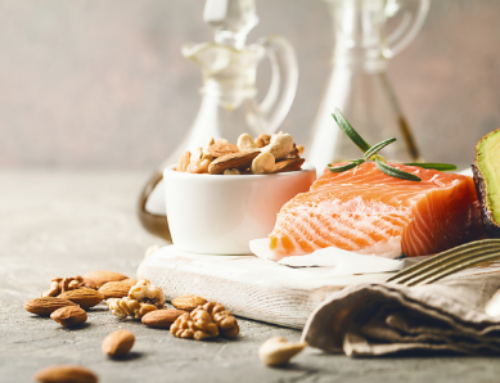Seed oils, including canola, sunflower, soybean, corn, and safflower oils, are pervasive in modern food products. While some foods are obvious culprits, seed oils often hide in less obvious places, making it challenging to avoid them completely. This article highlights both common and uncommon foods that often contain seed oils, helping you identify and limit their presence in your diet.
Common Foods That Contain Seed Oils
These are the usual suspects—foods where seed oils are frequently used for flavor, texture, or as a cooking medium:
1. Fried Foods
- French fries, onion rings, fried chicken, and tempura are often cooked in seed oils like soybean or canola oil.
- Even homemade fried dishes may use seed oils due to their affordability and high smoke points.
2. Salad Dressings and Mayonnaise
- Most commercial salad dressings, mayonnaise, and vinaigrettes use soybean, canola, or sunflower oil as a base.
- “Light” or “low-fat” versions often replace natural fats with seed oils and thickeners.
3. Snack Foods
- Chips (potato, tortilla, and veggie chips) are commonly fried in sunflower, canola, or corn oil.
- Crackers and popcorn, including microwave and pre-popped varieties, often contain seed oils.
4. Baked Goods
- Many cookies, cakes, muffins, and bread use seed oils for moisture and shelf life.
- Packaged baked goods like pastries and donuts are particularly likely to contain hydrogenated or refined seed oils.
5. Fast Food
- Burgers, chicken nuggets, and sauces like ketchup or ranch dressing often include seed oils in their preparation or as ingredients.
- Even foods labeled “grilled” may be basted with seed oil blends to enhance flavor and prevent sticking.
6. Processed Convenience Foods
- Frozen meals, instant noodles, and canned soups often rely on seed oils for consistency and taste.
- Sauces and gravies in ready-made meals typically include seed oils as emulsifiers.
Uncommon Foods That Contain Seed Oils
Surprisingly, seed oils also lurk in products you might not expect:
1. Plant-Based and Vegan Products
- Many plant-based meats, cheeses, and dairy alternatives rely on canola, sunflower, or safflower oils for texture and flavor.
- Vegan butter and margarine often use a blend of seed oils.
2. Nut Butters
- While natural nut butters should only contain nuts and salt, many commercial versions add seed oils to improve spreadability.
3. Energy Bars and Protein Snacks
- Seed oils like sunflower or soybean oil are frequently used in granola bars, protein bars, and “health” snacks to bind ingredients and add moisture.
4. Sauces and Condiments
- Ketchup, barbecue sauce, pesto, and even some hot sauces include seed oils as emulsifiers or stabilizers.
- Pre-made pesto and hummus often use sunflower or canola oil instead of olive oil to cut costs.
5. Ice Cream and Non-Dairy Desserts
- Some ice creams and frozen desserts include seed oils to enhance creaminess and extend shelf life.
- Dairy-free options like coconut or almond milk ice creams may contain sunflower oil.
6. Health Foods
- Flavored oatmeal, plant-based protein powders, and pre-mixed smoothie packs can contain seed oils.
- Many “organic” or “natural” foods still use seed oils because they meet regulatory standards but are cheaper than alternatives like olive oil or butter.
7. Canned and Jarred Goods
- Items like canned tuna, sardines, or marinated vegetables are often packed in seed oils instead of olive oil or water.
- Jarred pasta sauces and soups may also contain seed oils as a base.
8. Baby Foods
- Some baby snacks and purees include seed oils for texture and as a preservative, especially in “finger foods” like puffs or biscuits.
How to Avoid Seed Oils
1. Read Labels
Seed oils often hide under names like “vegetable oil,” “shortening,” or specific oils like “soybean oil” and “canola oil.” Check the ingredient lists carefully.
2. Choose Whole, Unprocessed Foods
Cooking at home with fresh ingredients allows you to control what goes into your meals, avoiding hidden seed oils.
3. Look for Alternatives
- Choose products explicitly made with healthier fats like olive oil, avocado oil, coconut oil, or butter.
- Many small-batch or artisanal brands avoid seed oils in favor of natural fats, so explore local or specialty stores.
4. Avoid Fast Food and Packaged Snacks
Minimizing consumption of highly processed foods and takeout is one of the easiest ways to cut down on seed oils.
Final Thoughts
Seed oils are pervasive in both common and unexpected foods, making them difficult to avoid entirely. However, by becoming aware of where they hide and opting for healthier, minimally processed alternatives, you can significantly reduce your seed oil intake and promote better long-term health. Small changes, like making homemade dressings or choosing snacks without added oils, can make a big difference in keeping seed oils off your plate.







Leave A Comment